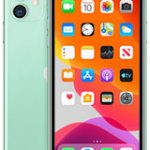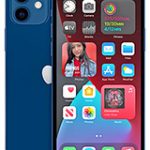Apple iPhone 11 vs. Apple iPhone 12: A Comprehensive Camera Comparison
When it comes to smartphone photography, Apple is one of the leading players in the market. The company’s latest offerings, the iPhone 11 and iPhone 12, both boast impressive cameras. Let’s take a closer look at how the two models compare.
| Phone camera Comparison | |
|---|---|
Apple iPhone 11 |
Apple iPhone 12 |
| Main Camera | |
| Dual Camera: 12 MP, f/1.8, 26mm (wide), 1/2.55″, 1.4m, PDAF, OIS 12 MP, f/2.4, 13mm (ultrawide) |
Dual Camera: 12 MP, f/1.6, 26mm (wide), 1.4m, dual pixel PDAF, OIS 12 MP, f/2.4, 120, 13mm (ultrawide), 1/3.6″ |
| camera Main Features | |
| Quad-LED dual-tone flash, HDR (photo/panorama) | Dual-LED dual-tone flash, HDR (photo/panorama) |
| camera Video | |
| 2160p@24/30/60fps, 1080p@30/60/120/240fps, HDR, stereo sound rec. | 4K@24/30/60fps, 1080p@30/60/120/240fps, HDR, Dolby Vision HDR (up to 30fps), stereo sound rec. |
| Selfie Camera | |
| Dual Camera: 12 MP, f/2.2 TOF 3D camera |
Dual Camera: 12 MP, f/2.2, 23mm (wide), 1/3.6″ SL 3D, (depth/biometrics sensor) |
| Selfie Camera Features | |
| HDR | HDR |
| Selfie Camera Video | |
| 2160p@24/30/60fps, 1080p@30/60/120fps, gyro-EIS | 4K@24/30/60fps, 1080p@30/60/120fps, gyro-EIS |
| Camera Review | |
| Review Apple iPhone 11 Camera Review | Review Apple iPhone 12 Camera Review |
Related for Apple iPhone 11 |
Related for Apple iPhone 12 |
Main Camera:
The iPhone 11 features a dual-camera setup with a 12MP wide-angle lens and a 12MP ultra-wide-angle lens. The main wide-angle lens has an f/1.8 aperture, while the ultra-wide-angle lens has an f/2.4 aperture. On the other hand, the iPhone 12 has a similar dual-camera setup with a 12MP wide-angle lens and a 12MP ultra-wide-angle lens. However, the wide-angle lens has an improved f/1.6 aperture, which allows for better low-light performance. The ultra-wide-angle lens remains the same with an f/2.4 aperture.
Camera Main Features:
Both the iPhone 11 and iPhone 12 feature quad-LED dual-tone flash and HDR for both photo and panorama modes.
Camera Video:
Both models can capture 4K video at up to 60fps and support HDR and stereo sound recording. However, the iPhone 12 also has Dolby Vision HDR support for up to 30fps.
Selfie Camera:
The iPhone 11 and iPhone 12 both have dual-camera setups for their front-facing cameras. The iPhone 11 has a 12MP wide-angle lens and a TOF 3D camera, while the iPhone 12 has a 12MP wide-angle lens and an SL 3D (depth/biometrics sensor).
Selfie Camera Features:
Both models have HDR support for their front-facing cameras.
Selfie Camera Video:
Both models can capture 4K video at up to 60fps and support gyro-EIS.
Camera Review:
The iPhone 11 and iPhone 12 both have excellent cameras, with the iPhone 12 having a slight advantage due to its improved low-light performance.
Additional Considerations:
While the cameras on both models are impressive, there are some other factors that consumers may want to consider. The iPhone 12 has a slightly larger screen and a faster A14 Bionic chip compared to the A13 Bionic chip on the iPhone 11. The iPhone 12 also has 5G support, while the iPhone 11 only supports 4G. Additionally, the iPhone 12 has a more durable Ceramic Shield front cover, which provides better drop protection.
In conclusion, while the iPhone 11 and iPhone 12 have similar camera setups, the iPhone 12 has some slight advantages in terms of low-light performance. However, consumers may also want to consider other factors like screen size, processor speed, and 5G support when making their purchasing decision.
Full Specs Comparison For Apple iPhone 11 vs Apple iPhone 12
